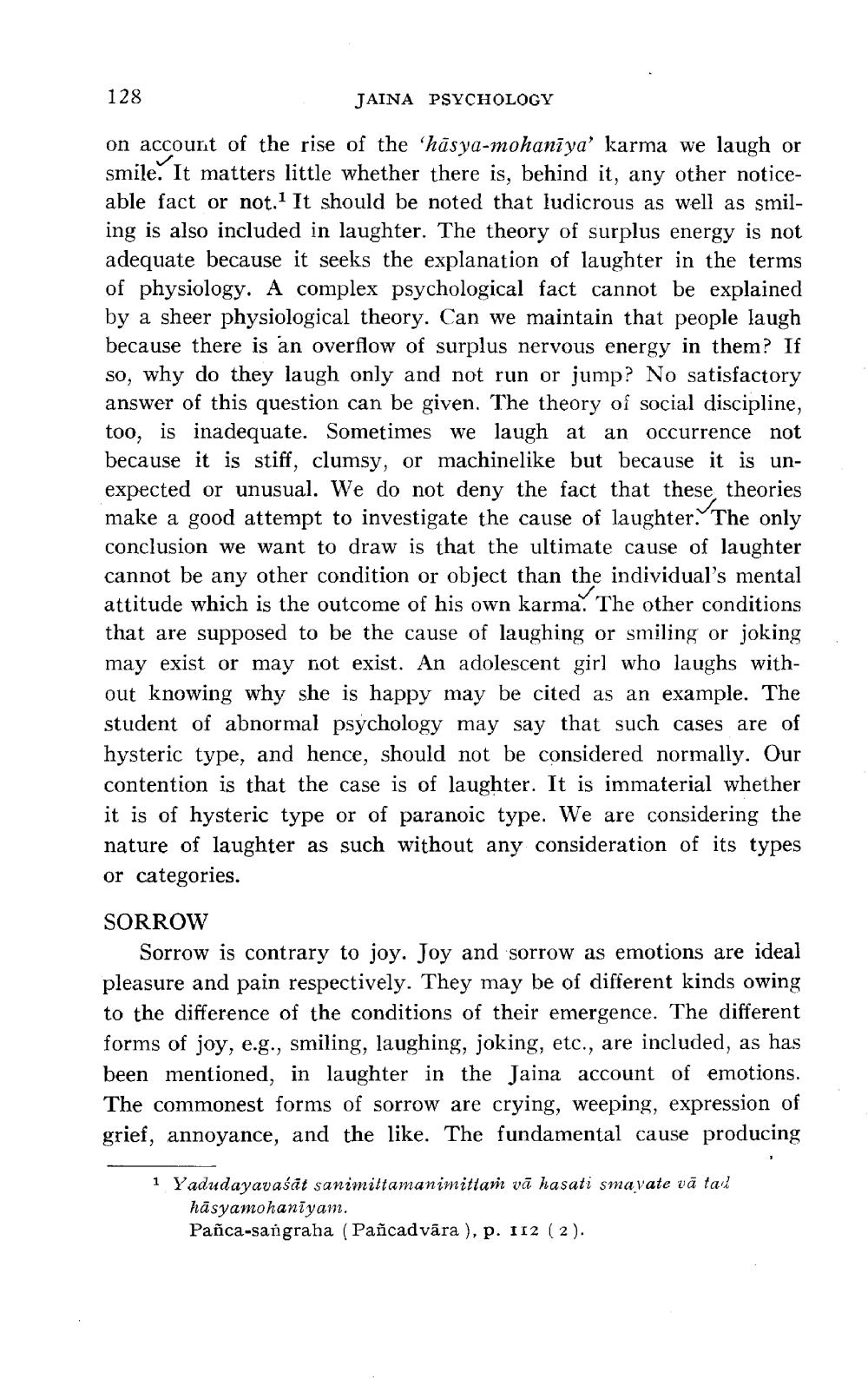________________
128
JAINA PSYCHOLOGY
on account of the rise of the 'hasya-mohanīya' karma we laugh or smile. It matters little whether there is, behind it, any other noticeable fact or not.1 It should be noted that ludicrous as well as smiling is also included in laughter. The theory of surplus energy is not adequate because it seeks the explanation of laughter in the terms of physiology. A complex psychological fact cannot be explained by a sheer physiological theory. Can we maintain that people laugh because there is an overflow of surplus nervous energy in them? If so, why do they laugh only and not run or jump? No satisfactory answer of this question can be given. The theory of social discipline, too, is inadequate. Sometimes we laugh at an Occurrence not because it is stiff, clumsy, or machinelike but because it is unexpected or unusual. We do not deny the fact that these theories make a good attempt to investigate the cause of laughter. The only conclusion we want to draw is that the ultimate cause of laughter cannot be any other condition or object than the individual's mental attitude which is the outcome of his own karma. The other conditions that are supposed to be the cause of laughing or smiling or joking may exist or may not exist. An adolescent girl who laughs without knowing why she is happy may be cited as an example. The student of abnormal psychology may say that such cases are of hysteric type, and hence, should not be considered normally. Our contention is that the case is of laughter. It is immaterial whether it is of hysteric type or of paranoic type. We are considering the nature of laughter as such without any consideration of its types or categories.
SORROW
Sorrow is contrary to joy. Joy and sorrow as emotions are ideal pleasure and pain respectively. They may be of different kinds owing to the difference of the conditions of their emergence. The different forms of joy, e.g., smiling, laughing, joking, etc., are included, as has been mentioned, in laughter in the Jaina account of emotions. The commonest forms of sorrow are crying, weeping, expression of grief, annoyance, and the like. The fundamental cause producing
1 Yadudayavaśāt sanimittamanimittam vā hasati smayate va tal hasyamohaniyam.
Pañca-sangraha (Pañcadvāra), p. 112 (2).




